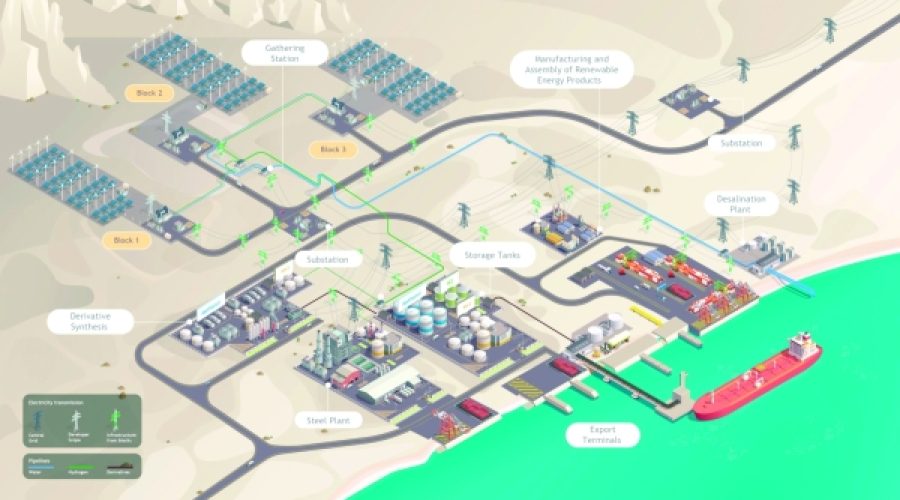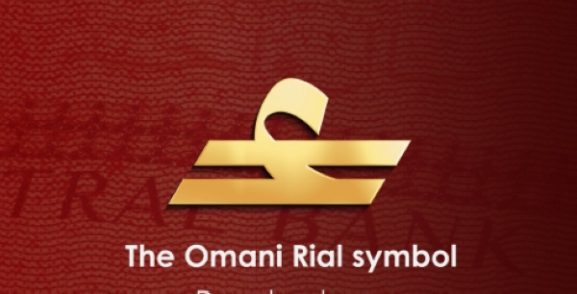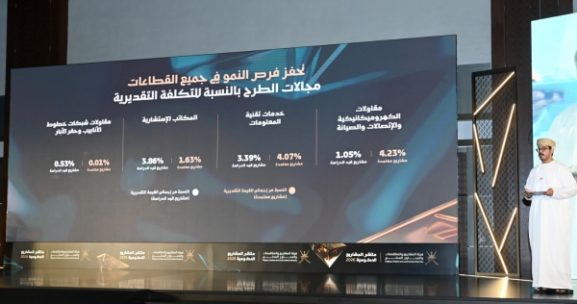تغییر رویکرد عمان به سمت خوشههای صنعتی خاص هر بخش: این تغییر برای سرمایهگذاران و کارآفرینان چه معنایی دارد؟
مسقط، ۱۱ سپتامبر - قطبهای صنعتی در عمان که زمانی عمدتاً با موقعیت جغرافیایی خود تعریف میشدند، اکنون به طور فزایندهای در حال توسعه حول بخشها و کالاهای خاص هستند. به گفته دکتر علی بن مسعود السنیدی، رئیس سازمان عمومی مناطق ویژه اقتصادی و مناطق آزاد (OPAZ)، انتظار میرود این روند نوظهور، سرمایهگذاریهای صنعتی جدیدی را در سراسر این سلطنتنشین جذب کند.
دکتر السنیدی به چندین خوشه آینده که در حال برنامهریزی یا در مراحل اولیه توسعه هستند، اشاره کرد. این خوشهها بر بخشهایی مانند هیدروژن سبز، تولید زنجیره تأمین انرژی تجدیدپذیر، مواد معدنی و صنایع آلومینیوم با ارزش افزوده تمرکز دارند. این رویکرد نشاندهنده تغییر از مناطق ویژه اقتصادی (SEZ) و مناطق آزاد اولیه است که عمدتاً در نزدیکی بنادر استراتژیک و بدون تمرکز خاص بر یک بخش تأسیس میشدند.
دکتر السنیدی توضیح داد: «سیاستهای OPAZ با استراتژی صنعتی عمان همسو است، که بر خوشهبندی بخشی تأکید دارد - گرد هم آوردن صنایع مکمل در مناطق تعیینشده برای تقویت زنجیرههای ارزش و افزایش تابآوری اقتصادی.» او منطقه آزاد صحار را مثال زد، جایی که یک خوشه تولیدی با محوریت تولید پلیسیلیکون و صنایع پاییندستی مرتبط با انرژی خورشیدی در حال ظهور است.
این نظرات در مصاحبهای با گروه تجاری آکسفورد (OBG)، یک شرکت انتشاراتی، تحقیقاتی و مشاورهای جهانی مستقر در لندن، مطرح شد. OBG اخیراً گزارش عمان ۲۰۲۵ خود را منتشر کرده است که پیشرفت قابل توجه عمان در انرژی، لجستیک، تولید، گردشگری و خدمات مالی را بررسی میکند و در عین حال فرصتهای نوظهور در انرژی سبز، فناوری کشاورزی و نوآوری دیجیتال را نیز بررسی میکند.
دکتر السنیدی در ادامه خاطرنشان کرد که شهرهای صنعتی و مناطق آزاد مستقر نیز شاهد تشکیل خوشههای جدید مختص به هر بخش هستند. به عنوان مثال، منطقه آزاد صلاله و شهر صنعتی ریسوت در مجاورت آن در حال توسعه یک خوشه دارویی هستند که از دسترسی آسان به مواد اولیه، زنجیرههای تأمین و بازارهای بینالمللی از طریق بندر صلاله بهرهمند میشود.
او افزود که طرح جامع منطقه ویژه اقتصادی دقم (SEZAD) در حال انجام است. زیرساختهای موجود این منطقه، انرژی لازم را برای پشتیبانی از یک خوشه متمرکز بر صنایع هیدروژن سبز و انرژیهای تجدیدپذیر فراهم میکند.
رئیس OPAZ تأکید کرد که توسعه زیرساختها به طور فزایندهای برای حمایت از این خوشههای بخشی تنظیم شده است. سرمایهگذاریها در زیرساختهای فیزیکی، لجستیکی و خدماتی به صورت استراتژیک برای رفع نیازهای منحصر به فرد صنایع اولویتدار در هر منطقه هدایت میشوند. به عنوان مثال، شهر اقتصادی خزائن در حال تبدیل شدن به قطبی برای صنایع مرتبط با مواد غذایی است که با سرمایهگذاریهای دولتی و خصوصی مانند بازار مرکزی میوه و سبزیجات سیلال تقویت شده است.
به همین ترتیب، بندر ماهیگیری تازه تأسیس در منطقه ویژه اقتصادی دقم، رشد یک خوشه بزرگ شیلات صنعتی را تقویت میکند. این خوشه از فعالیتهایی مانند کنسروسازی، فرآوری و تولید روغن ماهی، پودر ماهی و کودهای آلی پشتیبانی خواهد کرد. برنامههای در حال انجام شامل ادغام لجستیک زنجیره سرد برای به حداکثر رساندن ارزش در شیلات و فرآوری مواد غذایی است که بر تعهد دولت به این بخش تأکید دارد.
دکتر السنیدی همچنین تلاشهای هماهنگ با وزارتخانهها و سازمانهای مختلف دولتی برای توسعه سایر خوشهها را تشریح کرد. این تلاشها شامل صنایع پلاستیک و پلیسیلیکون است که از نزدیک با وزارت بازرگانی، صنعت و ترویج سرمایهگذاری، گروه OQ، سازمان سرمایهگذاری عمان، Invest Oman و برنامه Nazdaher همکاری میکنند. خوشه هیدروژن با هماهنگی وزارت انرژی و معادن و شرکت دولتی Hydrogen Oman در حال توسعه است. علاوه بر این، خوشههای ماهی و مواد غذایی با وزارت اقتصاد و وزارت کشاورزی، شیلات و منابع آب همسو هستند. چندین خوشه دیگر نیز در دست مطالعه یا طراحی هستند.
همچنین برنامههایی برای ایجاد یک مرکز تولید آلومینیوم پاییندستی در نزدیکی شرکت آلومینیوم صحار در حال انجام است، در حالی که در استان ظفار، در شلیم، OPAZ در حال ایجاد یک منطقه اقتصادی متمرکز بر مواد معدنی است. این منطقه شامل زیرساختهایی برای تسهیل صادرات عمده از طریق دریا خواهد بود که منعکس کننده یک دیدگاه استراتژیک برای ادغام توسعه منابع طبیعی با فرآوری صنعتی است.
دکتر علی مسعود السنیدی، رئیس هیئت مدیره OPAZ، همچنان از این تحول صنعتیِ مبتنی بر بخش، به عنوان کلید آینده اقتصادی عمان، حمایت میکند.
تحلیل ویژه از عمانت | بازار عمان را کشف کنید
تغییر استراتژیک عمان به سمت ... خوشههای صنعتی مختص هر بخش این امر نشاندهندهی یک فشار تحولآفرین برای عمیقتر کردن زنجیرههای ارزش و افزایش تابآوری اقتصادی است و زمینهی مساعدی را برای سرمایهگذاریهای هدفمند در هیدروژن سبز، انرژیهای تجدیدپذیر، مواد معدنی و آلومینیوم ایجاد میکند. این چشمانداز نوظهور برای سرمایهگذاران و کارآفرینان هوشمند، پیشنهاداتی ارائه میدهد. فرصتهای منحصر به فرد برای همسویی با زیرساختهای تخصصی و ابتکارات تحت حمایت دولتبه ویژه در انرژی سبز و تولید پیشرفته، ضمن کاهش خطرات با بهرهگیری از همافزاییهای بخشی و قطبهای لجستیکی تثبیتشده. کسبوکارها در عمان اکنون باید تمرکز بر ادغام در این خوشهها برای به حداکثر رساندن رشد و رقابتپذیری در یک اکوسیستم صنعتی که به سرعت در حال تحول است.



